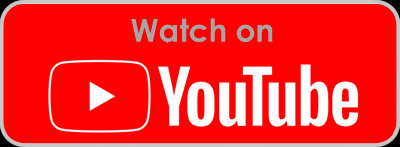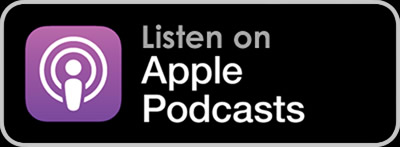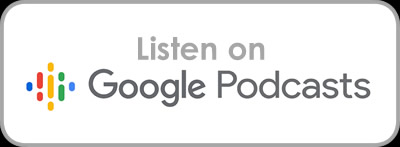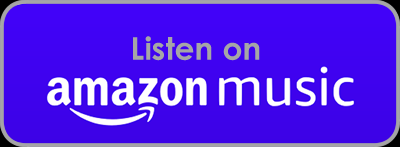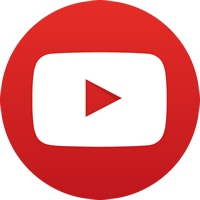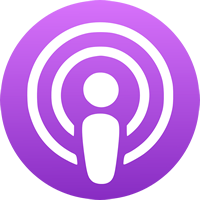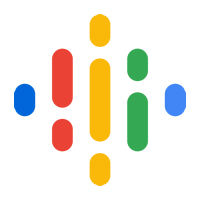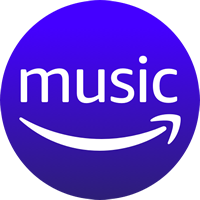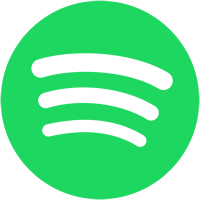There’s a lot more content out there than there used to be. This means that to be a success, you’re going to have to do something different to everyone else out there.
So what content should you be publishing in 2021 and how do you get it seen by your target audience?
Those are just two of the questions that I’ll be asking my guest on Digital Marketing Radio Episode 245. He’s a prolific Keynote Speaker & Trainer, a digital skills evangelizer and the founder of Talk Dygital – welcome to DMR – Andrew Davis.
Key questions covered in this episode:
How different is content marketing in 2021?
What type of content works best in 2021?
How has this changed over the past few years?
How has the type of content that is successful changed since the pandemic?
What publishing platforms are most effective at the moment?
How does a holistic content strategy fit together?
How do you get eyeballs on your content – do you have to pay to play now?
How else do you successfully promote content – can you still achieve a decent level of organic success?
Secret Software:
AutoDraw, AnswerThePublic & Exploding Topics
Next on the List:
VR
Magical Marketer:
Chris Branch
Audio recording:
Full transcript:
David Bain 0:00
Digital Marketing Radio Episode 245, how to build a successful content marketing strategy in 2021
Bot 0:08
Digital Marketing Radio with David Bain.
David Bain 0:13
Hi, I’m David Bain. And this is Digital Marketing Radio, the show for in-house agency and entrepreneurial marketers who want to stay on top of that is tools, tactics and trends are shared by today’s modern marketing masters.
Now, there’s a lot of content out there, there’s a lot more content out there than it used to be. Now, this means that to be success, now, you’re gonna have to do something different to everyone else out there. So what content should you be publishing in 2021? And how do you get it seen by your target audience? Those are just two of the questions that I’m going to be asking my guest on Digital Marketing Radio, Episode 245. He is a prolific keynote speaker and trainer at digital skills and evangelizer, and the founder of a talk digital, welcome to DMR Andrew Davis.
Andrew Davis 0:59
Hey, thanks a lot, David. Nice to see you. And hi to all the listeners out there. Yeah.
David Bain 1:05
Thanks so much for coming onboard. Andrew. So you can find Andrew over AndrewMilesDavis.com. So Andrew, how different is content marketing in 2021?
Andrew Davis 1:16
Wow. It’s interesting, because I’ve been working in the digital space since full time since 2001. So I mean, 20 of you or my third decade. And something I can say, when it comes to content, the actual types of content has changed a lot from when I first started to Now, obviously, then it was all about was mainly text, images was there. But obviously a lot of it has to do with that bandwidth and space. So yes, we had videos, but not to the level that we have now. And obviously move forward to to where we are. Now, technically, anything that goes on the internet is content. And that could be from a sending a text message all the way to putting together a feature length, film and apps and everything else. So content, I always often say to people, it’s the blood of the internet, because it’s anything that goes online is is technically content. So yeah, there’s a there’s a big change over the years. And with 2021.
Pretty much being the way it is because of 2020 for obvious reasons. There’s more and more content on the internet than ever before,
David Bain 2:24
it’s changed so much. I actually started my first online business in the year 2000. And worked at that for a year or two. And eventually it didn’t, didn’t really work out. So I ended up bam. But I’ve been going full time in digital marketing since about 2005 or so. So I can kind of relate to you. But talking about three decades or entering your three decades, that’s just absolutely phenomenal. And things have changed so much. So taking us back to present day to 2021. What kind of content Do you see resonating with people nowadays, what kind of content works best? Now, at the moment?
Andrew Davis 3:03
Well, I think a lot of the content is dictated by the platform. So that if we just keep it social media for for a bit. It’s dictated by the platform. So when you see Facebook really pushing videos, it kind of almost not necessarily forces people, but it kind of like pushes people in the in the direction to create more videos, you’re seeing the likes of Instagram, obviously Instagram, when I first joined Instagram, this was probably 2011. It wasn’t even a social network, it was just a platform where you upload images, and you can turn it black and white. That’s the only reason I joined back then. But now obviously, we’ve got videos, but we’ve got the rules. So if you’ve got rules, you’re going to get a lot more organic reach than if you had pretty much any other type of content. So but when you break down rules, it’s still video content. So I think when it comes to content, what people are creating a lot of it is dictated by the platform’s because for marketers point of view is not just about creating content, you want the reach, you want people to see it, you want to get as many eyeballs on it and increase awareness, which hopefully leads to some form of conversion. So a lot of the time the technology will dictate the behaviour or the type of content that we ended up creating.
David Bain 4:19
So you talk about reach and thinking about organic reach, certainly over the last few years or so on Facebook, and certainly Facebook pages organic reach has plummeted. Is it still worthwhile as a brand to be publishing posts on Facebook pages without actually paying to promote them as well?
Andrew Davis 4:40
You can, yes, it’s still worth doing it. But you need to kind of understand a bit more about how the algorithm works. So Facebook’s algorithms called edgerank. So it’s important to understand how that works. So for example, understanding how once you upload a piece of content, affinity around that content, so really I’m talking about the engagement that can happen around a piece of content, whether you like it share comment reaction. And what we’re seeing is that they’re not treated equal. So if you get a reaction, it’s worth more than a like. And that’s one area that we need to kind of look at. Another area will be to do with the type of content going back to what we were saying before. So right now you see videos, you’re going to get a lot more exposure on Facebook than you would if it was just text. Time plays a big part. So again, when you’ve, you pretty much got 24 hours to get the most out of your content on Facebook, other platforms, you might have less some like YouTube, you could have years. So again, that’s another part. Another thing I’ve noticed as well recently is mobile and desktop. So if you go on to your phone, and you, let’s say you’ve got Facebook, on your phone, and Facebook, on your desktop, if the news is the news feeds are not exactly the same, then there’s two different algorithms at play. So all of these factors. And also if you’ve got a piece of content sending with a link sending you off of Facebook, as well, they’re not going to increase your reach because they want you to pay. So all of these, like factors plus a few more, is really going to affect your reach. So yes, organic reaches out all time low. But understanding how how the algorithms work, can help increase that. Now, if you want to get the most out of Facebook, really, if you add advertising to that. And if you can do advertising, where let’s say you spend in, I don’t know, let’s say 10 pounds a day, and 10 pounds, Facebook will tell you what your reaches. But you’ve created ads, that’s kind of aimed at more of the people sharing and commenting and getting exposure out that 10 pounds originally might be worth that if you pay, but if you get a lot of the shares, actually 10 pounds will get you this much reach. So what I’m what,
David Bain 7:00
so for audio listeners.
Andrew Davis 7:06
So yeah, so imagine 10 pounds would get you say organic reach of let’s say it can reach 1000 people, but if you get people sharing the content that organic that 10 pounds could get you 5000 people, if you can get people to share it because you don’t pay for the share. So that’s that’s where you pay for the exposure. But if someone sees it and then shares it, you don’t have to pay for that. So that’s ways that’s used. Obviously, from that point of view, you still have to pay. But that’s a ways to get the most out of your money that can hopefully increase your reach.
David Bain 7:41
So if as a brand, you’ve been publishing bad content or content that doesn’t get engagement in the past, well, those previous posts, will the impact of those previous posts, the engagement levels of those previous posts, impact the likely engagement that you’re going to get for future posts, or is every post that you publish a fresh opportunity?
Andrew Davis 8:04
Yes, it does. It does have an effect. But it’s not necessarily Oh, I didn’t do well, a year ago. So it doesn’t, I’m not going to do well. Now it’s more, let’s look at your last few posts and see how well they perform. And then that kind of gives you a it will kind of give Facebook an idea. So if you’ve not performed well in your last three or four posts, then they’re probably going to your, the odds of you getting exposure over someone else that has performed well is going to be less, which obviously means your reach becomes less. But that doesn’t mean that sporadically, you something like all of a sudden will just become very popular, because that’s what I’ve noticed the platform’s do. Sometimes you have doing really bad and you post something, and all of a sudden it explodes. And you’re like, I don’t know what I’d done differently on this one, because I’ve done exactly the same thing on the last way, but it didn’t work. So I think they always do that to keep people guessing. And also it keeps you interested as well. You know, if he was at the casino, and you lost every time, it’s not good, you’re not going to stop off the wall. But if you all of a sudden one one, you’re like, Oh, you know, let me continue betting. So I think that’s kind of like how they how they look it sometimes.
David Bain 9:15
Okay, great stuff. And so you talk a lot about engagement as a way of measuring whether or not your piece of content has been success or is likely to be success, does that mean there’s not really about the type of content you publish, it could be a long video, a short video, it could be text, it could be image based, as long as if it gets engagement. Go into your metrics, go into your analytics and actually try and replicate what’s been a success in the past for you. And for other brands.
Andrew Davis 9:43
I think it’s a mixture. So I do think the type of content plays a very big part as I was saying before, if for example, you was using Instagram and you’ve got rules that’s going to do well or any platform, any platform that’s created something new, then that will do that will give you more organic reach. In what you would normally get, so the type of content really plays a part. But then afterwards, they’re going to look at the engagement metrics around it. So if you performed very well, or if that piece of content performed well, then with Facebook, they might You’re lucky if you get 5%. But then they might say, Okay, well, actually out of this 5%, you seem to have reached a particular point, let’s give, let’s expose it to more people, and then more people and more people. I think LinkedIn is a really good one where you can kind of see that happening, where LinkedIn. Again, this is what we kind of see when we test certain things that you’ve pretty much got like a an hour, 20 minutes to an hour to get the most internet content. And if it does, well, then it could last. Well, if it goes very, I’ve had a few things go viral on LinkedIn. And I’ve had people like that content nine months later. And I’m thinking, how did you ever see this. But generally speaking, it could be four or five days later, where I don’t often see that on Facebook, where you’re getting likes for something you posted four or five days ago, but it can’t happen. So I think it goes down to a mixture of both, I don’t think it’s like, has to be this or this, I think it’s a mixture of both. And you’re seeing that more and more across all platforms.
David Bain 11:15
I remember talking to Larry Kim, from mobile monkey a couple of years ago about LinkedIn success. And he was saying that whenever you publish a new LinkedIn post then actually takes over and takes from your organic reach from your previous post. So if you want to keep your return on your organic reach of a post, then don’t publish a new one for a little while. Is that something you’d agree?
Andrew Davis 11:39
Yes, on your personal page, on your business page, I don’t think it plays matters that much on your personal page yet, if what I’ve noticed is that you again, you’ve got about 24 hours, you’ve got pretty much give it a day. So it’s almost like you’ve got a ceiling that you’re going to reach. And it gives it all to that one post. But if that post is doing well, and then you post something else, it will then Eva, that first post will continue doing well. And your second post dies, or your second post will do well on your first post dies. So it’s almost like it gives that like Larry mentioned, it will give it to the other post. But on your company page, I’ve seen I’ve had three or four things just go really well. Like at once. And you don’t have to post I’ve, I’ve got well I know a few people that will post 456 times a day. And for each one they get in hundreds of hundreds of likes. So yeah, I’ve noticed that is a difference on your personal to professional page on LinkedIn.
David Bain 12:39
Great, great to know. And also a couple of points ago, you mentioned Instagram reels. So for anyone that hasn’t heard of that and isn’t sure of how to use it, what is it and what kind of content works best there.
Andrew Davis 12:54
So essentially, when you look at reels, it’s a short, short video call. I don’t know if you know tik tok is essentially Instagrams version of that. So it’s a short video usually music based, and it usually has a an edit or two or three edits. Showcasing something. It’s really popular now when it comes to music and dance. But it’s also popular to do funny clips. It’s almost taken over what vine used to do back in the days. And it’s almost an extension of stories as well. So when it comes to reels, it’s the same as what you’ve got with tik tok, and YouTube’s got shorts, and I think Twitter’s got one of them and what Twitter’s one’s called, but you’re starting to see and costs almost all platforms just like how you saw stories across all platforms. The purpose of these is short pieces of content that entertains people or showcases something might be a short short tutorial, in video format. And it’s just short clips. And it’s meant to keep people’s interest because it’s short clips. So when you watch television shows or films, again, a lot of its time it’s to free seconds, and on to the next bit. Next Click Next Click Next camera angle, but it might be telling the same story. So essentially, it’s the internet’s short version of that. And it’s doing very, very well right now. On Instagram, it’s doing well but like I said, a lot of it has to do with the organic reach that you you have from it. Okay,
David Bain 14:27
so what about audio, social platforms, things like clubhouse Twitter spaces, as well as that something you’ve tested and you think brands can take advantage of as well.
Andrew Davis 14:38
I definitely think more B2B brands can take advantage of it. What I think is going to be interesting in over the next year is to see whether or not it’s a platform by itself, or it’s a feature for a platform. So for example, cloud what you’re seeing is that As you mentioned, Twitter’s created their version. And you’re gonna see Facebook’s created their version, LinkedIn. I’ve heard there’s versions in in this testing right now, to see whether or not it’s Do we need a whole platform like a clubhouse? Or can it be added to Facebook or LinkedIn? And I think that’s going to be interesting space. There’s been a lot of attempts in this space over the years. I remember back in 2009, I can’t remember the name of the platform now, but there was one that was created. That’s very similar. But it worked for a bit, but then it stopped. And Stephen Fry was was very heavily on this as well. But maybe I think sometimes it doesn’t, it’s not necessarily it didn’t work, because it wasn’t a good idea. I just think the timing wasn’t right then. Now potentially the time Yeah, who right. But I don’t know, it’s one, it’s one that we’ll have to see. I personally, I think it’s more of a feature rather than a whole platform for itself.
David Bain 16:04
It’s all about timing isn’t Yeah. Because I remember as I’m sure you do, boot camp, and the hardline fashion feeling in the year 2000? Or was it 1999? And boohoo.com, just three or four years later started and look at the massive success. They are Yeah, exactly. get the timing right for for the digital world. And just one other question before we move on to the next section. And that’s more maybe more of a holistic understanding of where everything fits together. So we’ve talked a lot about about social media content. And so what about other forms of content and where that fits into the mix? So for instance, long form content, your own blog content, maybe email marketing, as well. So how does social media content fit into everything? And where do you try and drive people perhaps from social content? Sure. Well,
Andrew Davis 16:54
I think when it comes to email marketing, email marketing is still effective, I just feel that it’s not the sexy thing to do at the moment. But it’s still very effective when it comes to e commerce is still very effective when it comes to B2B is still very effective. When it comes to people just consuming content. It’s just as I said, it’s it’s not the sexy thing that people talk about as much. Search will always be there, you know, if content is the blood of the internet searches the breath. So search will always be there, what you’re seeing when it comes to Google, it seems that they’re preferring long form content with rich content on it. So again, it might be free for 5000 words, but a lot of images, videos within it links externally links internally of like, could be widgets. So it could be an audio widget that’s added to it. So you’re seeing a lot more long form content, from that point of view. When it comes to, generally, your website, again, it’s a lot of it is going to always go down to the user journey. So if you’ve got long form content, yes, we can look at dwell time, yes, we can look at other things. But a lot of it is going to do with the user journey. Where do people go? How long do they stay on the site for what other sites are connected to it. And that will help for example, the ranking in search, which obviously is a way to drive traffic to your website, email marketing, as I said before, that, that will always play play a big part in what we do in ways to communicate, yes, GDPR, obviously, a few years ago, was was an issue, while still is an issue. And third party data, added it to platforms. Without going into the whole iOS 14 update, being with your privacy, and third party data, obviously, there’s that issue, the way you collect email, and then communicate to people on that email list without their permission. So you’re gonna have that type of issue. But generally speaking, I feel when it comes to content marketing, we are in a very good place. But ultimately, and as I said, like yourself have been in this game for a while. So we’ve seen a lot of things change. But also, I’ve seen a lot of things not change. And what I mean by that is, you still need something to sell, you still need somewhere to sell it, and you still have to sell it to someone, and how you communicate that is going to be for your content. And when people talk about things changing all the time, really, it’s people’s behaviour or technology. And when it comes to behaviour online, it’s how they how people interact with content. And when it comes to technology, it’s how we can get that content to people. So smartphones are smart because of the content that they provide. So that’s why I say content is the blood of everything. And when it comes to content I so after I worked at Pop Idol At the BBC, for four and a half years, I was working at Radio one extra, so one of their digital stations. And when I left there in 2006, I was poached by my space to launch it in the UK. And this is where I started to really understand the idea of digital content. In this type of world that we live in now, and understand that creating content is only one part of the whole equation, yes, we have to create content, but then we also have to see it. But now we also want people to engage with it. And that could be from search to click on it to go somewhere or from social media to share, like whatever. And then we need to get people to take some form of action on it as well. So when we really break down where content is right now, there is a narrative that just talks about what content can we create, what types of content, but actually, just as important is getting people to find it, getting people to engage with it. And if we can’t convert people, we just have a very cool hobby. So we really need to absolutely, really focus on those areas as well.
David Bain 21:05
A lot of great thoughts there. I think one of the secrets of a lot of big brands is they actually spend more money on promoting a piece of content, then creating that piece of content. And that’s probably where smaller brands fall over the they spend 1000s of pounds on that piece of content, they publish it and they think, Where’s everyone actually interacting with that piece of contemplation pray approach, you know, to publish, click publish,
Andrew Davis 21:27
and then pray the internet. Gods make this go viral?
David Bain 21:32
Yeah, which is becoming less likely now with the volumes of content that’s being published.
Andrew Davis 21:36
Exactly. And also, some smaller organisations, even large organisations, they’re not ready, if it does go viral. Because if something the internet is all about moments, so you need to capitalise on that moment. And if something goes viral, it doesn’t usually go viral for two, three weeks. Like in a traditional world, it might go viral for a few hours. So did you capitalise on it? in those few hours? Did you? What did you do in those few hours? Were you ready? And a lot of organisations are not really ready for that. So sometimes I say to people, be careful what you wish for. Because you might not be ready. To me. It’s just like, the one hit wonder in music. You know, their first song just went viral. The herd done really well. But they were not ready for what happened next.
So again, it’s just capitalising on those moments.
David Bain 22:26
Absolutely. Absolutely. And you’re you’re making me think of so many different things. I’m actually researching different things as we’re, as we’re talking here. I should tell the listener also, you mentioned iOS 14, with Jim Banks on Digital Marketing, Radio, sharing a lot of great value on iOS 14 and what that means for Facebook and an apple and to the debate that’s happening between them. So listen to Digital Marketing Radio Episode 232. For that, yes,
Andrew Davis 22:53
please. So yeah, definitely listen to that episode.
David Bain 22:56
Great stuff. Thanks, Andrew. Well, let’s segue to part two of our discussion. So now it’s time for Andrew thoughts on the state of digital marketing today. So starting off with SECRET SOFTWARE, so Andrew share a lesser-known martech tool that’s bringing you a lot of value at the moment and why that tools important for you. Sure. Okay. So
Andrew Davis 23:11
on my website, I’ve got a guide of over 530, free marketing tools, a free communication, communication tools. So I’m really big on these on these finding cool tools. So without going through the obvious ones, like the canvas and the Hootsuite so one that I like, and my job is I’m presenters, as you mentioned, David. So I’m present a keynote speaker. So I’ve always doing slides. And there’s a tool called auto draw. So then if you’ve no auto draw, but
David Bain 23:43
auto to auto draw,
Andrew Davis 23:45
yeah, so I think it’s owned by Google auto draw book. Yeah. So auto and end draws in your drawing a picture. And what it is, is predictive text for drawing. So if you can’t draw, say, for example, I need to draw a bicycle. And I can draw two circles and a line between the two circles and in an attempt to do a frame and some handlebars. But this site works out what you’re trying to draw, and it gives you answers. So imagine if you’re texting something, and you’re sending a text, and it works out what words you use, it does it for pictures. So it’s a great way to come up with pictures that you like. So I can draw an ostrich. I can draw an elephant all the things that I couldn’t draw before, but you can work out what it does. And then you can download that and you can add to your content. So that’s a really cool site. Another one, just two other ones that I just quickly, like, answer the public. I don’t know if you know that one. But answer the public is a really good site for idea generation, and exploding topics. So exploding topics is looking at trends that’s about to explode. So you’ve got the likes of Google Trends, which is great at looking at historical data by exploding topics is good at looking at what’s likely to happen. Because Yeah, this is Knowing the trend is good, but obviously, we are always trying to work out what’s next and get in front of a trend before it kind of goes mainstream. So they are free sites absolutely
David Bain 25:09
superb. Yeah, I’ve heard of offence to the public and use it fairly extensively, certainly, but I haven’t heard of also draw an exploding topic. So great resources, and I’ll be checking those out, but maybe moving on from something that you’re currently using to something that you’re going to use. So the next thing is NEXT ON THE LIST. What’s one marketing activity or tool that you haven’t tried yet, but you want to test soon?
Andrew Davis 25:32
So this is a really interesting one, because I think I’ve tried everything
Unknown Speaker 25:35
from from
Andrew Davis 25:39
Amazon. So over the years, everything, pbn networks, etc. So, but I think, for me, now, I’m ready to explore virtual reality quite a lot. And the reason why is because virtual reality, as you know, you probably was around in 2005, when you was working online. So virtual reality has been around for a long time. But I think now we’re at the space whatsoever at a time where it’s affordable. There’s a lot of pretty good software. And it’s starting to become not obviously not the norm, but it’s starting to become a lot of money and investment starting to go in this space from big companies. So when I always often say follow the money, so if we were starting to see a lot of money going from big companies, then they they’re seeing something that we haven’t seen yet. And even yesterday, I done a virtual reality training course, someone did, like he was demonstrating some software. And I thought, Okay, this has potential. Now, I think this digital transformation that we’ve gone through over the last year, is starting to all of a sudden fast track a lot of things. And for me, I think digital, virtual reality is going to be interesting space. I think that once, as I said, once you really start seeing Apple and Google get involved, and we’re gonna see a lot more things. And I think that once we get over motion sickness, then it becomes like, that’s where I feel the next big, like, as big as mobile was. I think that’s how we’re and that’s something that I would like to get involved.
David Bain 27:25
Maybe sticking in that for just a second, because you’ve always looked into that into quite a bit. I mean, I’ve got one of these mobile headsets, and I’ve played around with it a little bit, but I haven’t done too much with it. But what do you see as the first major consumer adoption of VR? What do you think that think that’s going to be? Do you think that there’s one particular thing that consumers are going to suddenly Understand? Ah, that’s why VR is important for me,
Andrew Davis 27:55
I think it will be games. I think there’ll be some game that will be Wow, I can understand this now. Just like Pokemon GO was to augmented reality. And those filters, so augmented reality has been around, well, backends, for 10 years plus, but it was Pokemon Go. And the filters that made people say, Wow, this is amazing. Not google glasses, and snap lenses, it was it was just taking, like chasing these Pokemons. And taking a picture with doggies, that’s what really made it. So I think what’s going to happen in the game and the virtual reality, there will be one game, that’s, there probably be a game that the gamers would love first. And then I think there’ll be a game that the mainstream people who like candy, crush, etc, they will like, and if that game can be something which will be shareable, and get people involved, then that’s going to play a big part. Because the reality is people are friendly and not brand low, you know, just go to where their friends are. You know, I’ve seen it happen when I was at friends or united. I see it happen when I was at my space. I see it happen with all of the other places as well. You know, it’s the reason why Google Plus didn’t work. Probably the best social network I’ve seen, like, technically, but people just couldn’t be bothered to start again. So I think that’s gonna be the other thing as well, will be adult content. I think the adult content will be the big game changer. And that could its history has shown it’s done it for VHS is to DVDs to blu ray to HD. So I think they are going to be the two things that’s really going to change the game in VR.
David Bain 29:38
Do you think Google are going to attempt to build anything else in social or are they going to attempt to buy some of their up and coming social network or are they done with trying to compete with Facebook, Twitter and LinkedIn socially,
Andrew Davis 29:55
afterwards? I think they’re done in the sense that I don’t think I fit no We’re looking at the next layer. Because social media now, you know, is now social media, if you really look at the first social media sites, Friendster, and the first big one was my space. My Space was what? 2005 2006. So that’s 15 years ago. And you’ve seen a lot of common a lot of go. But now, if, if Google tried to get into the social media social networking game, it’s almost not saying it’s too late. But Facebook is probably not looking at that Facebook’s looking at VR, augmented reality and everything else in the AI space. I asked what I think Google will be focusing on I don’t think they’re going to try and come up with another network like a Facebook Like a Google Plus, or wave. That was another one that they had. And buzz. I think that was the one they had before that. I think what they’re going to do is work out, how can we do something, let’s say in the virtual reality space, that will have a social network to it. And I think that’s what their goal is. But if the opportunity came on, when it came along and tick tock said we’re up for sell, then yeah, they’ll just blow. Okay, well, let’s just buy that there. But I don’t think they’re gonna try and start from scratch.
David Bain 31:11
Yeah, I mean, they’ve certainly done well with YouTube. And YouTube is quite a social
Andrew Davis 31:15
platform. Yeah, exactly. And YouTube, but I remember before they even owned YouTube, because when I was at my space, we used to say, don’t have the YouTube effect. And what that was, was, at the time, people would go to YouTube consume content and leave, they wouldn’t log in, they wouldn’t do anything. So YouTube didn’t really have any data. So it was you can’t look at it thinking Alright, well, what’s the point? From an entertainment point of view for the general public? Great, what for everybody, for the actual company didn’t make sense. So obviously, YouTube, understanding it, building it. To me, YouTube is like, bomb, maybe WhatsApp. YouTube is my favourite social media site. So they’ve got something there that’s worth. That’s a valuable asset, a very valuable asset. So I think they’ll probably look at that. Be happy with that, but work on the next, the next big game changer.
David Bain 32:13
See Andrew, you say things like bar watsapp. And suddenly WhatsApp is your favourite social network, and I want to dive into another stream that you actually offer me there as well. I’m not gonna lie. Let’s move into the next stem question section, which is this or that round? So this is the quick response round 10 quick questions, Just 2 rules here. Try not to think about the answer too much. And you’re only allowed to see the word booth on one occasion, wisely. Are you ready? Let’s go. Tick Tock on Twitter, tick tock, Facebook or LinkedIn, LinkedIn, YouTube or podcast, YouTube, traffic or leads.
Unknown Speaker 32:56
leads,
David Bain 32:57
paid search or SEO, SEO, ads, or influencers? Both Google ads or Facebook ads,
Unknown Speaker 33:09
Facebook ads,
David Bain 33:11
email marketing or cat marketing,
Unknown Speaker 33:15
email marketing,
David Bain 33:16
Mar tech stack all in one platform?
Unknown Speaker 33:22
stack
David Bain 33:24
one to one or scale, scale? And ads or influencers? It was both why was that both?
Andrew Davis 33:37
I do a lot of training on ads. And I do a lot of training and influences. So I see the benefit of both. So with that one, it was like, I don’t know what I would choose. So I guess yeah, it will probably be that was the one that I’ll be like, yeah, both with everything else maybe apart from the stack, the the MAR tech stack and order. All in one. That was the other one. I was thinking actually both. But yeah. When I think about what I do, I usually have separate things rather than just all in one platform. Yeah,
David Bain 34:09
exactly. It’s interesting. It seems to be the mindsets of different people that are either drawn to using lots of different disparate technologies and just tying them all together with Zapier or or something else or just trying to use one core piece of technology that does absolutely everything. And I think there are pros and cons for for either.
Andrew Davis 34:29
Yeah, definitely.
Unknown Speaker 34:30
Okay, great. Well, let’s move on to the $10,000 question.
David Bain 34:35
So if I was to give you $10,000 and you had to spend over the next few days in a single thing to grow your business, what would you spend it on and how would you measure success?
Andrew Davis 34:45
Honestly, if I wanted to get a buzz, if I wanted to create some viral content, and go get the internet going nuts, I honestly would Spend 1000 bucks, I’ll take 1000 pounds, I’ll go to somewhere very popular like Oxford Street, I’ll get a sign that’s got my, my website on, and I’ll throw it in the air and I believe it’s yours, follow this particular URL. And I’ll tell you where I’m going to be next week. And then I’ll because what will happen, people go, they will go, people returned in people taking picture there, but like, This is crazy. I’ve thrown money around and just given it away, and that will create such a buzz. And then people will be like, Where is he going to be next week. And then I’ll just do 1000 pound for the next week. And then I’ll just do it for 10 weeks. That’s pretty much what I will probably do if I had to do one thing. If I had to do other things, then I’ll probably do a bit of ads, email marketing influence among I’ll do some funnels. But if it was just one thing to create a huge awareness, I, I probably would do that. Because that will create so much bars, it will get people taking pictures, people will follow you because they want to do stuff, I think that what will happen is brands will see that and say, okay, you’re the guy that give out stuff can we can we give you stuffers. So on the next time you can do this, people take a lot of pictures of me, I’ll speak to somebody to sponsor what I’m wearing. And I could just see someone just doing that. And often say to brands, I say you might as well do that, and then spend that 10,000 pounds on this expensive video when you’ve not got any promotional idea behind it. Because that’s essentially what you’re doing, you’re throwing the money away. So that’s pretty much what I would do. I love
David Bain 36:32
that because it’s thinking outside of the box. It’s also blending physical offline promotion, with digital marketing as well. And I think too many digital marketers, maybe just think of digital and have that siloed tunnel visioned approach to what they’re doing without other things that could actually possibly be more beneficial wouldn’t through other elements into the mix as well. It reminds me, I used to work for a marketing agency in Sydney in Australia. And we did a campaign for a biscuit called Tim Tams there there are like penguin biscuits over over in the UK. And we made a Tim Tam tree. So actually stuck, Tim Tom briskets do your tree, you know, and that’s and and it was in the middle of Sydney. And of course everyone started taking their their pictures of this tree. And it was it was a great piece of social engagement because of that, that effort that physical effort and creating something physical rather than something digital. Have you actually done something like that? Because Because it seems like an idea that you’re very different. And specific, I guess to yourself, so So have you done maybe some physical marketing, that’s actually turned out to be additional success.
Andrew Davis 37:46
Not for what I do now, just because my business doesn’t need that. So as I said, I’m a trainer, I’m a speaker, so I don’t necessarily need to do that. But when I was, let’s say when I was at my space we used to do all the time, you know, to do these secret shows. And then it will just be an event you don’t know who’s turning up. But it will always be some. Like, for example, you meet everybody meets here and then we’ll just get everybody on buses and cabs and then we take them to the real venue. Or we used to do this thing called the my space so far. So you grab, we freed up this sofa, we’ll put it on stage. And whoever wins the competition will be on stage with the artist, wherever that’s at the event. So we used to do a lot of offline and online stuff, because people will take pictures and bring it there. So I’ve used to do a lot of like that. I used to call it online guerilla marketing. But Satan online meets guerilla marketing, because it was the outside marketing, but the guerrilla IE just random out of the box thinking but with the online element that people will take the pictures or the content and post it and let it go viral. So used to do a lot of stuff there. But as I said, my main job is it wouldn’t make sense for me to do that. To do that. However, I have worked with many clients that has done stuff like that, or they’ll come to me, this is the idea that we’ve got, can we how can we can you give us a strategy around how to promote that? Or can you train our team on how to promote that? And that’s pretty much what I what I would do. So I’ve done that for a lot of the a lot of big ad agencies.
David Bain 39:22
Yeah, I love that. I think it’s so important to think out of the box as you as you say, I remember a couple of years ago, I hosted a big end of your online live stream and that was several hours long and had 15 or so marketers as part of it and everyone who was on it. I wrote a physical thank you letter or branded. It was a postcard actually. And so many of them obviously took photos of it and said and cheered on social media and said thank you. It’s not many people blend physical and digital. It’s becoming easier to do it in an automated way but still not. Not enough people are doing it. So that’s something To think of, definitely let some to finish off to shift the focus to someone else who deserves it. So that is a MAGICAL MARKETER. So who’s an up and coming marketer that you’d like to give a shout out to? What can we learn from them? And where can we find them? Sure. So
Andrew Davis 40:16
the guide, I realised a guy called Chris branch, and he runs a company called sea to branch on LinkedIn. And if you want to know anything about LinkedIn, or just go to a company that helps you generate leads, but a content first approach, so you’re building brand as well as business, I would say Chris Brown, she’s probably in his 20s. Has that young sense of I understand how platforms work, but has the old sense of I also understand how business works, and it meets nicely in the middle. So he’s mainly LinkedIn, but he’s very, very, very good at LinkedIn. So just type in seed to branch. So seed s ed to an in branch like a tree branch, and then you just see what what he posts on on his company page. So he’s built a company page on LinkedIn, which is one of the hardest things to do. So he’s built a company page on LinkedIn. So yeah, he will be the one that I would I would like to talk on, shout out to.
David Bain 41:21
Yeah, the good thing. Great recommendation. The good thing about building a company page, of course, is that you can actually promote posts, you can use LinkedIn ads to do that. But again, that’s another tunnel that we won’t go into this time for this picture. So this was Episode 244, Digital Marketing Radio, where Andrew Davis from Andrew miles davis.com shared lots of great content marketing tips to begin with. So you were talking about social post engagement, and how to really focus on driving those engagement levels to get additional views, you also share, the email isn’t dead yet. And also that rich, long form content is particularly successful at the moment. So rich, long form content, 4000 words or so he said, incorporating images, video, other different elements like that as well. For your SECRET SOFTWARE, you shared three pieces of software he shared how to draw enter the public and exploding topics. Your NEXT ON THE LIST was VR. And your MAGICAL MARKETER was Chris branch, from seed to branch. absolutely superb stuff, Andrew. So everything that you mentioned in the show notes in the show today will be in the show notes at Digital Marketing radio.com. Andrew, what’s the best social platform for someone to follow you and say hi,
Andrew Davis 42:33
for me is LinkedIn. That’s my drink of choice. So it’s linkedin.com slash iron slash Andrew. M for miles, and then Davis So Andrew M. Davis, as well as my website Andrew miles davis.com
David Bain 42:47
to purple. I’ll also link to that from the show notes as well. I’ve been your host ever been You can also find me producing podcasts for B2B brands over at Casting cred.com remember pourover you’re consuming this content. Feedback is fantabulous until we meet again stay hungry, stay foolish and stay subscribed. Aloha
Unknown Speaker 43:08
Digital Marketing Radio,
Unknown Speaker 43:12
Digital Marketing Radio,
Unknown Speaker 43:16
Digital Marketing Radio,
Unknown Speaker 43:17
Digital Marketing, Radio,
Unknown Speaker 43:19
Digital Marketing Radio


